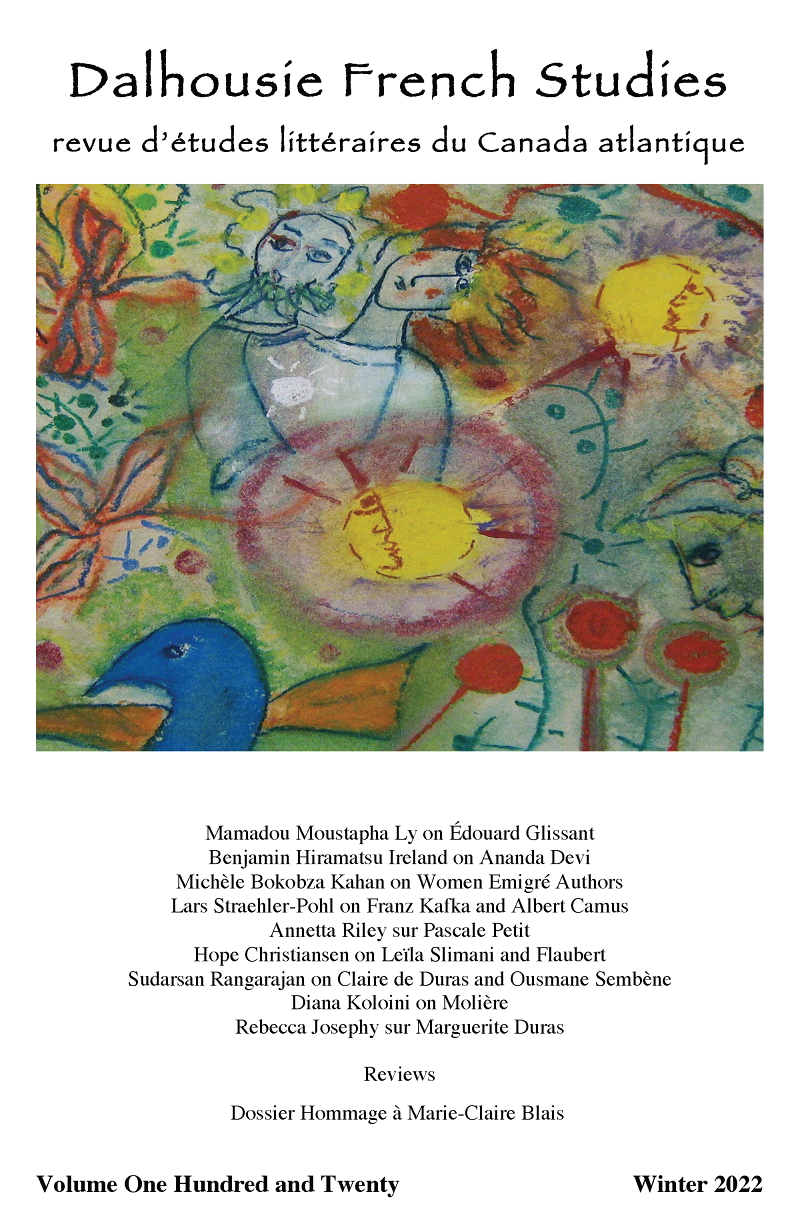Hospitality, Revolution and the Emigrant Experience: Guests and Hosts in French Revolutionary Novels of Emigration Written by Women Authors
Résumé
This article examines the presence of hospitality as a significant theme in four French Revolutionary novels of emigration written by three major female authors of that time, Isabelle de Charrière, Claire de Duras and Stéphanie de Genlis. It aims to highlight the multiple facets of the concept of hospitality in these novels and to demonstrate that beyond its traditional meaning, hospitality operates too in political, social and ethical realms: 1) it becomes the pivot of an introspective reflection: a critical look at the conventions and social practices of the French nobility, 2) it reflects a political thought: tensions between condemnation and loyalty to the Old Regime system, and between adherence to and suspicion of republican ideals, 3) last but not least, it opens a path to a feminist approach through situations that stage relationships of help and care by émigré women for émigré women. The reading angle that I propose in the article confirms the originality of these novels that link emigration and hospitality by evoking the potentiality of new situations, no matter how painful they may be: flexibility, emancipation, adaptation, openness, sharing and care are key themes that recur in the narratives to underline the transformative power of mutual support, responsibility and trust between women.
Cet article explore la thématique de l‘hospitalité dans quatre romans d‘émigration de la Révolution française écrits par trois auteures importantes de l‘époque, Isabelle de Charrière, Claire de Duras et Stéphanie de Genlis. L‘objectif est de mettre en évidence les multiples facettes du concept d‘hospitalité dans ces romans et de démontrer qu‘au-delà de sa signification traditionnelle, l‘hospitalité opère également dans les domaines politique, social et éthique : 1) elle devient le pivot d‘une réflexion introspective : un regard critique sur les conventions et les pratiques sociales de la noblesse française, 2) elle reflète une pensée politique : des tensions entre la condamnation et la loyauté envers le système de l‘Ancien Régime, et entre l‘adhésion et la suspicion envers les idéaux républicains, 3) enfin, elle ouvre une voie vers une approche féministe à travers des situations qui mettent en scène des relations d‘aide et de soins par des femmes émigrées pour des femmes émigrées. L‘angle de lecture que je propose dans l‘article confirme l‘originalité de ces romans qui lient émigration et hospitalité en évoquant la potentialité des situations nouvelles, aussi douloureuses soient-elles : flexibilité, émancipation, adaptation, ouverture, partage et soins sont des thèmes clés qui reviennent dans les récits pour souligner le pouvoir transformateur du soutien mutuel, de la responsabilité et de la confiance entre femmes.


